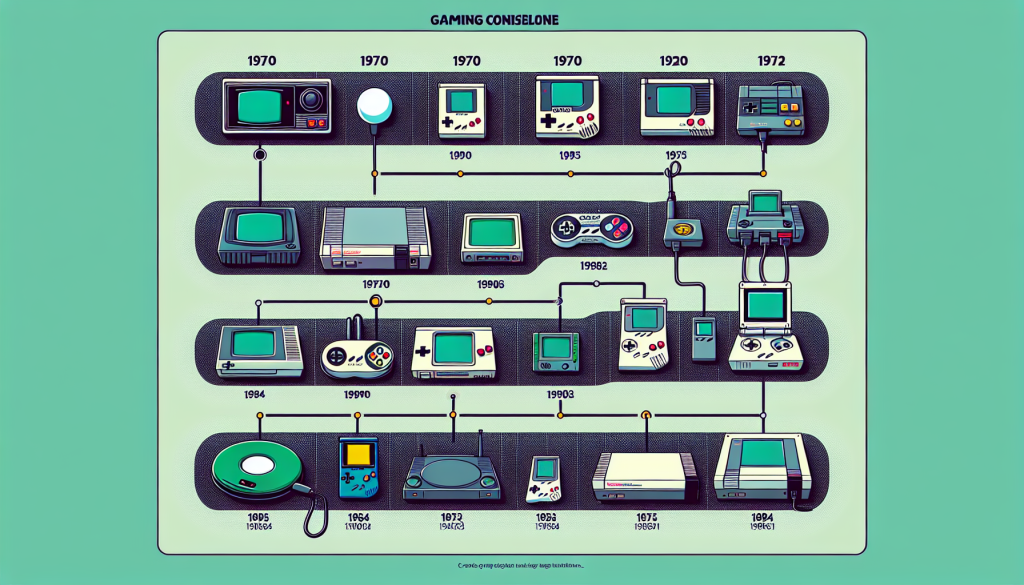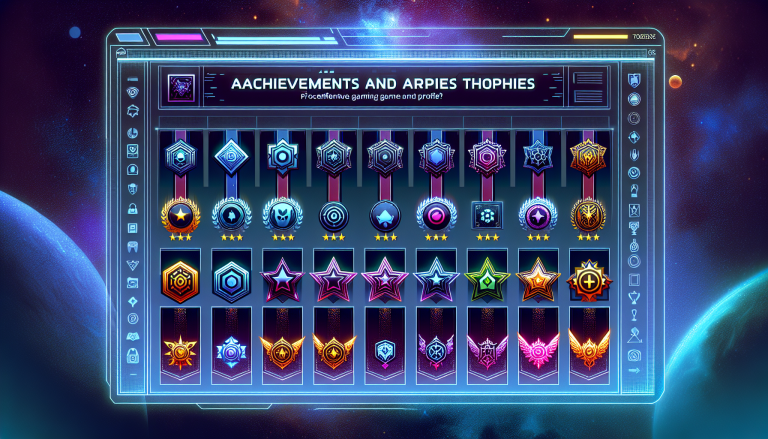The Rise of Socially Conscious Gaming
Video games have come a long way since their inception, evolving from simple pixelated adventures to immersive, lifelike experiences. But as the medium has matured, so has its ability to tackle complex social issues and promote social consciousness. In recent years, there has been a significant rise in socially conscious gaming, where developers use their games as a platform for social commentary and awareness.
Gone are the days when video games were solely seen as mindless entertainment. Today, they have the potential to be powerful tools for sparking conversations and encouraging empathy. This new wave of socially conscious gaming is driven by a desire to address real-world problems and shed light on topics that might otherwise go unnoticed.
One of the most notable examples of socially conscious gaming is the critically acclaimed game “That Dragon, Cancer.” This emotional and intimate exploration of a family’s struggle with a child’s terminal illness is a profound example of how video games can tackle difficult subjects with sincerity and compassion.
Through its interactive storytelling, “That Dragon, Cancer” allows players to step into the shoes of the parents and experience their pain, grief, and hope. It serves as a reminder of the power of empathy and the potential for video games to create a deep emotional connection with players.
Another game that has made waves in the realm of socially conscious gaming is “Papers, Please.” In this dystopian puzzle game, players assume the role of an immigration officer, making life-altering decisions for virtual characters who are seeking entry into a fictional totalitarian state.
“Papers, Please” forces players to confront the moral dilemmas faced by immigration officers in the real world. It challenges players to question their own biases and grapple with the consequences of their decisions. By putting players in the shoes of those who hold power over others’ lives, the game fosters a better understanding of the complexities surrounding immigration policies.
These games, along with many others, are shining examples of how video games can serve as vehicles for social commentary and awareness. They tackle subjects that are often overlooked or ignored, forcing players to confront uncomfortable truths and encouraging them to engage in meaningful discussions.
So, how can we support and encourage the rise of socially conscious gaming? First and foremost, we can actively seek out and support games that tackle social issues. By purchasing and playing these games, we send a clear message to developers that we value their efforts to create meaningful and thought-provoking experiences.
Additionally, we can engage in discussions about these games on social media, forums, and other platforms. Sharing our thoughts and experiences can help raise awareness and inspire others to explore these socially conscious titles. By amplifying these voices, we can foster a stronger community of socially conscious gamers.
Furthermore, we can encourage game development schools and programs to include social consciousness as a core component of their curricula. By providing aspiring developers with the tools and knowledge to create games that promote empathy and awareness, we can ensure a future where socially conscious gaming is the norm rather than the exception.
The rise of socially conscious gaming is an exciting development in the world of video games. It represents a powerful fusion of art, storytelling, and activism, creating an immersive and impactful medium for exploring social issues. By actively supporting and engaging with socially conscious games, we can contribute to a more inclusive and compassionate gaming landscape.
Video Games as a Platform for Social Commentary
Video games have come a long way since their early days of simple graphics and limited narratives. Today, they have evolved into a powerful medium that not only entertains but also provokes thought and sparks discussions on important social issues. With their immersive and interactive nature, video games have become a platform for social commentary, providing players with a unique opportunity to engage with and explore complex topics.
The beauty of video games lies in their ability to transport players into different worlds and perspectives. They allow us to step into the shoes of characters and experience situations that we may not encounter in our daily lives. This opens up a window of understanding and empathy, enabling us to gain a deeper appreciation for diverse experiences and perspectives.
Many game developers have recognized this potential and have successfully integrated social commentary into their storytelling. Games like “Bioshock” and “Deus Ex” have tackled themes of political corruption and societal inequality, challenging players to question the systems and structures that exist in our own world. By presenting these issues in a fictional setting, video games encourage critical thinking and analysis while providing an engaging and entertaining experience.
Moreover, video games have the power to shed light on important social issues that are often overlooked or marginalized. They have the ability to give a voice to underrepresented communities and bring attention to topics that need to be discussed. For example, “Hellblade: Senua’s Sacrifice” explores mental health in a way that is both respectful and thought-provoking, allowing players to gain a better understanding of the challenges faced by individuals living with mental illnesses.
In addition to addressing social issues through their narratives, video games can also promote awareness and education through gameplay mechanics. Games like “This War of Mine” and “Papers, Please” simulate the difficulties and moral dilemmas faced by those living in war-torn countries or working as immigration officers, respectively. These games challenge players to make tough decisions and confront the ethical implications of their choices, fostering a deeper understanding of the complexities of these situations.
Furthermore, video games have the potential to bring people together, fostering community engagement and activism. Online multiplayer games, such as “World of Warcraft” and “Fortnite,” provide a space for players to connect with others from around the world, forming communities and friendships. Within these communities, players can organize and advocate for causes they care about, using their shared passion for gaming as a tool for change.
It is important to note that while video games have the potential to be powerful platforms for social commentary, they should not be seen as a replacement for real-world activism. Rather, they should be viewed as a supplementary tool that can spark conversations and inspire action. By engaging with these games and discussing their themes, players can gain a better understanding of social issues and contribute to positive change in their own lives and communities.
In conclusion, video games have emerged as a compelling medium for social commentary, providing players with a unique opportunity to explore and engage with complex social issues. Through their narratives, gameplay mechanics, and ability to foster community engagement, video games can promote empathy, awareness, and even activism. By embracing this potential, both players and developers can contribute to a more inclusive and socially conscious gaming landscape.
The Rise of Socially Conscious Gaming
Promoting Empathy and Awareness through Video Games
Have you ever found yourself deeply immersed in a video game, feeling a strong connection to the characters and their struggles? Well, you’re not alone. Video games have the power to evoke emotions and create empathy in players, which is why they are now being used as a platform to promote empathy and raise awareness about various social issues.
One of the ways video games promote empathy is by allowing players to step into the shoes of characters from different backgrounds and experiences. By controlling these characters and experiencing their stories firsthand, players gain a better understanding of the challenges they face. This can be particularly impactful when it comes to shedding light on marginalized communities and issues such as racism, discrimination, and mental health.
For example, the critically acclaimed game “Hellblade: Senua’s Sacrifice” takes players on a journey through the mind of a Celtic warrior dealing with psychosis. Through stunning visuals and immersive gameplay, the game effectively portrays the struggles and stigma surrounding mental health. By putting players in the shoes of Senua, it encourages empathy and compassion for those facing similar challenges in real life.
Similarly, the game “Gone Home” explores themes of sexuality and family acceptance. As players uncover the story of a young woman coming to terms with her own identity, they gain a deeper understanding of the LGBTQ+ experience and the importance of acceptance and love.
Video games also have the potential to raise awareness about pressing social issues. Through engaging narratives and gameplay mechanics, they can effectively tackle topics such as climate change, human rights, and social inequalities.
Take, for instance, the game “Papers, Please,” where players take on the role of an immigration officer in a dystopian society. As they make decisions about who is allowed entry and who is denied, players are confronted with the moral and ethical dilemmas faced by real-life immigration officers. This game sheds light on the challenges faced by refugees and immigrants, prompting players to question the systems and policies that govern our world.
In addition to promoting empathy and awareness, video games can also encourage community engagement and activism. Online multiplayer games create spaces where players from around the world can come together to discuss social issues, share their experiences, and work towards positive change.
Games like “World of Warcraft” and “Minecraft” have seen players organizing in-game events to raise money for charitable causes and create communities centered around social change. These virtual worlds provide a platform for players to collaborate, support one another, and make a difference in the real world.
In conclusion, video games have evolved beyond mere entertainment and have become a powerful tool for promoting empathy, raising awareness, and fostering community engagement. By immersing players in diverse narratives and challenging them to think critically about social issues, video games have the potential to create positive change in the world. So, the next time you pick up a controller, remember that your gaming experience can go beyond just having fun – it can be an opportunity to gain new perspectives, broaden your horizons, and make a difference.
Encouraging Community Engagement and Activism in Video Games
When you think of video games, you might imagine a solitary player immersed in a virtual world, detached from reality. However, the gaming landscape has evolved tremendously over the years, and a new wave of socially conscious gaming is emerging. In this article, we will explore how video games are becoming a platform for encouraging community engagement and activism.
Creating Inclusive Spaces
One of the remarkable aspects of video games is their ability to bring people together from all walks of life. Online gaming communities have become vibrant hubs where individuals can connect, collaborate, and engage in shared experiences. Game developers are increasingly recognizing the importance of inclusivity and are making conscious efforts to create spaces that are welcoming to everyone.
For instance, many games now offer customizable character options, allowing players to express their individuality and identity. This inclusivity extends beyond personal customization, with games also featuring diverse storylines and characters that represent a variety of cultures, backgrounds, and perspectives. By fostering an inclusive environment, video games can create a safe and supportive space for players to engage with others and promote understanding and acceptance.
Sparking Conversations
Video games have the power to ignite conversations about important social issues. By incorporating thought-provoking narratives and themes, game developers can inspire players to reflect on real-world challenges and engage in meaningful discussions. This intersection of entertainment and social commentary allows players to explore complex issues in a unique and interactive way.
For example, games like “Life is Strange” tackle topics such as mental health, bullying, and LGBTQ+ rights, prompting players to empathize with the characters’ struggles. These games not only entertain but also serve as a platform for education and awareness. By immersing players in realistic scenarios, video games can cultivate empathy and encourage players to think critically about the world around them.
Driving Positive Change
Beyond sparking conversations, video games can also inspire tangible action and activism. With a vast player base and a passionate community, games have the potential to mobilize people towards causes they care about. Developers are recognizing this power and are incorporating elements that encourage players to engage in real-world activism.
For instance, games like “Sea of Solitude” tackle environmental issues and prompt players to consider the impact of their actions on the planet. Some games even collaborate with non-profit organizations, donating proceeds or organizing in-game events to raise awareness and funds for social causes. By leveraging the immersive nature of gaming, developers can motivate players to make a difference in the world, turning their passion for gaming into a force for positive change.
Joining Forces for a Better Future
Community engagement and activism in video games are not limited to developers alone; players also play a crucial role. By actively participating in game communities, sharing opinions, and supporting causes, players can contribute to the overall impact of socially conscious gaming.
Whether it’s organizing charity streams, advocating for inclusivity, or creating spaces for dialogue, players have the power to shape the gaming landscape and drive change. By joining forces, developers and players can create a collective movement that promotes social awareness and encourages positive action, both within and outside the gaming world.
In conclusion, video games are no longer just a form of entertainment; they are becoming powerful platforms for community engagement and activism. Through inclusivity, thought-provoking narratives, and opportunities for real-world action, gaming can inspire social change and encourage players to contribute to a better future. So, let’s embrace the potential of socially conscious gaming and make a difference, one game at a time.












